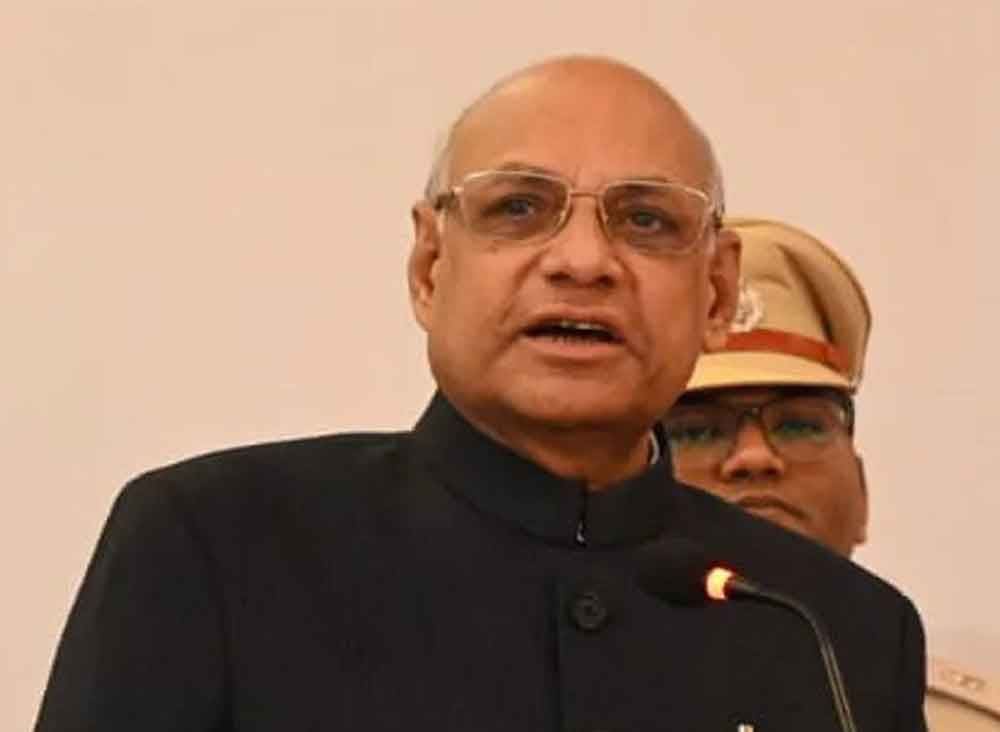Ranchi: Governor Ramesh Bais has returned the 1932 based Local Policy Bill back to the state government. He has returned the bill saying that this local policy will give rise to unnecessary debate.
The Raj Bhavan has said that the ‘Jharkhand Definition of Local Persons and Extension of Consequential Social, Cultural and Other Benefits to Such Local Persons Bill, 2022’ has been returned to the state government for review. He has said that the state government should review the legality of this bill so that it is in accordance with the constitution and in accordance with the orders and directions of the Supreme Court.
It was requested by the State Government for the approval of the Governor and assent of the President for the act to become a bill. According to this Act, a person having domicile of Jharkhand shall mean a person who is an Indian citizen and resides within the territorial and geographical limits of Jharkhand and his or his ancestor’s name is recorded in the survey/khatian of 1932 or earlier.
It mentions that only local persons identified under this act will be eligible for appointment against class-3 and 4 of the state. During the review of the Bill, it has been found clear that in Article 16 of the Constitution all citizens have equal rights in the matter of employment.
According to Article 16(3) of the Constitution, only the Parliament has been empowered to impose any kind of conditions in the case of employment under Section 35 (A) under special provision. The State Legislature does not have this power. AVS Narasimha Rao and others v. Andhra Pradesh and others (AIR 1970 SC 422) also clearly explained that the power to impose any kind of conditions in the matter of employment rests only with the Parliament of India.
Thus, this bill is against the provision of the constitution and the order of the Supreme Court. Jharkhand is a scheduled area under the state which is covered under the fifth schedule. Clear guidelines have been issued by the Constitutional Bench of the Supreme Court on the subject of giving 100 percent reservation in employment to the local people in the said areas.
In the said order also the powers vested in the Governor to impose conditions for appointments to the Scheduled Areas were declared by the Supreme Court to be contrary to Article 16 of the Constitution. In the case of Satyajit Kumar vs State of Jharkhand, the Supreme Court again declared 100 percent reservation given by the state in scheduled areas as unconstitutional.
It was clarified by the Law Department that the provisions of the Bill in question are contrary to the Constitution and the orders of the Supreme Court and it has been said that such provision is not in accordance with certain judgements referred to passed by the Supreme Court and the Jharkhand High Court.
At the same time, such a provision clearly appears to be inconsistent and having adverse effect on the fundamental rights provided in Article 14, 15, 16 (2) of Part III of the Indian Constitution, which will also be affected by Article 13 of the Indian Constitution and will give birth to unnecessary debates.
While reviewing the act on behalf of the Governor it was found that in the circumstances described when the State Legislature is not vested with the power to pass a bill in such cases. A serious question arises on the legality of this bill. He returned this bill to the state government saying that they should seriously review the legality of the bill, the bill should be in accordance with the constitution and the orders of the Supreme Court.

